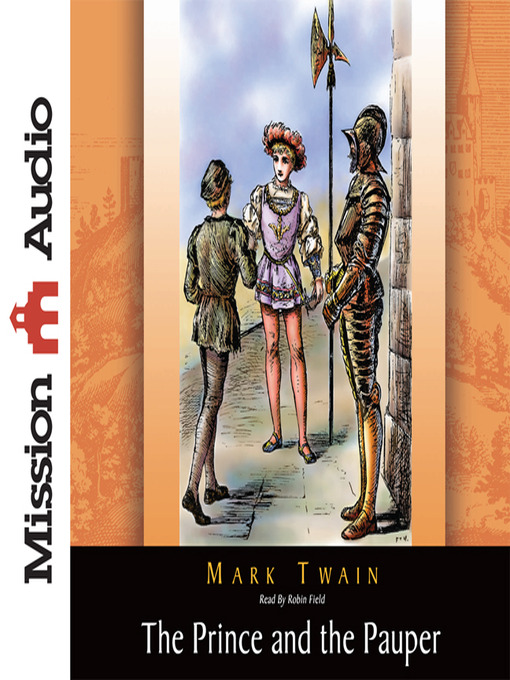-
Creators
-
Publisher
-
Release date
May 1, 2011 -
Formats
-
OverDrive Listen audiobook
- ISBN: 9781610451413
- File size: 239117 KB
- Duration: 08:18:09
-
-
Languages
- English
-
Levels
- Lexile® Measure: 1170
- Text Difficulty: 8-9
-
Reviews
-
Publisher's Weekly
October 4, 1999
Made less satirical than Mark Twain's classic and simplified for younger readers, this retelling is still a lively romp. A beggar and a prince look so alike that they change places but then cannot immediately switch back. Mayer's (The Unicorn and the Lake) adaptation is serviceable if not sparkling; she retains all the key scenes of the story but flattens Twain's archaisms. While some of the original's sophisticated humor gets lost in the translation, much of it remains. For example, when Edward, the prince, tries telling pauper Tom's parents that he is really the Prince of Wales, Tom's mother responds, "Oh, poor Tom, it's all those books you read that's done this to you." And in court, when Tom is given a finger bowl, he drinks from it, announcing, "This is a very flavorless soup." Lippincott (Bruce Coville's Magic Shop series) vibrantly renders the ragged features of the paupers, and his tableaux are full of life. His palace scenes are ornate, light-filled watercolors of splendor in which the boys' homely, toothy faces seem like the only real and honest things. For readers not yet ready for Twain, this version, like its model, will make them think about their places in the world. Ages 7-up. -
AudioFile Magazine
[Editor's Note: The following is a combined review with ANNE OF GREEN GABLES.]--Imagination is key to both these classics. Young Anne ("Anne with an e"), adopted into a Prince Edward Island household, uses her imagination and determined spirit to fill her world with hopes and aspirations. And the "dreamings and readings" of the pauper Tom Canty set off the cascade of mistaken identities that comprise Twain's famous tale. The St. Charles Players offer amusing adaptations of these stories with accessible, appealing performances. Here is family listening to entertain different ages and interests. The casts are a bit uneven, but each has some outstanding roles. These are not sophisticated productions, but the spirit of these classics is undaunted--like Anne of Green Gables herself. R.F.W. (c) AudioFile 2002, Portland, Maine
-
Formats
- OverDrive Listen audiobook
subjects
Languages
- English
Levels
- Lexile® Measure:1170
- Text Difficulty:8-9
Loading
Why is availability limited?
×Availability can change throughout the month based on the library's budget. You can still place a hold on the title, and your hold will be automatically filled as soon as the title is available again.
The Kindle Book format for this title is not supported on:
×Read-along ebook
×The OverDrive Read format of this ebook has professional narration that plays while you read in your browser. Learn more here.


